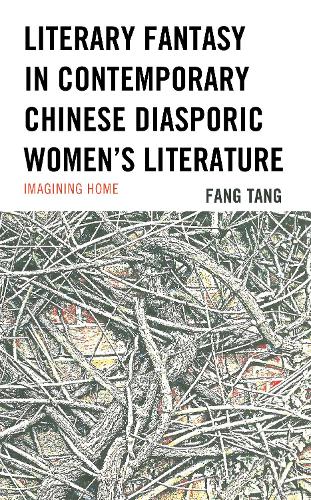
Literary Fantasy in Contemporary Chinese Diasporic Women's Literature: Imagining Home
(Hardback)
Publishing Details
Literary Fantasy in Contemporary Chinese Diasporic Women's Literature: Imagining Home
By (Author) Fang Tang
Bloomsbury Publishing PLC
Lexington Books
3rd December 2019
United States
Classifications
Professional and Scholarly
Non Fiction
810.98951
Physical Properties
Hardback
204
Width 161mm, Height 229mm, Spine 21mm
481g
Description
This book explores the use of literary fantasy in the construction of identity and home in contemporary diasporic Chinese womens literature. It argues that the use of fantasy acts as a way of undermining the power of patriarchy and unsettling fixed notions of home. The idea of home explored in this book relates to complicated struggles to gain a sense of belonging, as experienced by marginalized subjects in constructing their diasporic identities which can best be understood as unstable, shifting, and shaped by historical conditions and power relations. Fantasy is seen to operate in the corpus of this book as a literary mode, as defined by Rosemary Jackson. Literary fantasy offers a way to rework ancient myths, fairy tales, ghost stories and legends; it also subverts conventional narratives and challenges the power of patriarchy and other dominant ideologies. Through a critical reading of four diasporic Chinese women authors, namely, Maxine Hong Kingston, Adeline Yen Mah, Ying Chen and Larissa Lai, this book aims to offer critical insights into how their works re-imagine a home through literary fantasy which leads beyond nationalist and Orientalist stereotypes; and how essentialist conceptions of diasporic culture are challenged by global geopolitics and cultural interactions.
Reviews
This is a fascinating book. It is a poetic and political work. I am recommending this book for its originality and commitment to explore the complexities of the lives of four Diasporic Chinese women and their sense of home from a unique perspective. Sarah forcefully argues that Fantasy literature serves to bring back Chinese mythologies, fairy tales, and ghost stories which subvert the status-quo narratives, question the power of patriarchy and how it enables the women to re-imagine the notion of home and belonging, highly contested concepts which is dealt with great knowledge by the author and constitutes her main contribution to the field.
Sarah takes the reader on a story-telling voyage through the academic and the poetic. The critical analysis is profound and sensitive of the lives of the diasporic women in their quest for equality and a place in society. This is a must-read for academics and non-academics interested in fantasy literature, Diaspora studies and Cultural and post-colonial studies.--Olga Bailey, Nottingham Trent University
Utterly absorbing from the outset, this work represents a major and original contribution to diasporic literature studies. By placing race and gender at the heart of enquiries into notions of home and unhomeliness, Tang reveals the subversive potential of literary fantasy and offers new ways of conceptualising the complexity and variation of diasporic experience.
--Kathryn Batchelor, University College London
Author Bio
Fang Tang is associate professor in the department of literature and art at Yangtze University.
